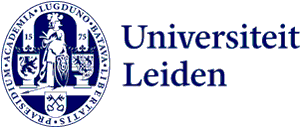
Humanities Campus Think Tank: institutes need to discuss work environment layout with staff members
On 12 April the Humanities Campus Think Tank held its second meeting in the Lipsius Building. In a Q&A session with Elisa Meijer, the Facilities project leader, the members asked about the context and room for manoeuvre in the development of the new Humanities Campus work environment.
It became evident at the start of the meeting that, despite the Plan of Approach, the Think Tank’s purpose was not yet sufficiently clear. Elisa Meijer therefore took time to answer various questions from the Think Tank members. Several of these questions related to the workspace norm. The decision that the Faculty of Humanities also has to use the workspace norm in the new Humanities Campus was taken by the Executive Board last September. This decision will not be reversed: like all the other faculties, we too will have to apply the norm in the buildings. Compensation in space by omitting one lecture hall, for example, will not result in extra square metres in the work environment. The layout of the work environment will comply with the workspace norm, regardless of the number of square metres used for teaching or facilities.
It is now also clear that the Think Tank has no say in decisions on the alternative Humanities Campus as such. On Thursday 12 May it was announced that the University has found a way to build a sustainable and contemporary Humanities Campus on the fewer available square metres. In that case, what input is actually requested from the members of the Think Tank? The Think Tank has been asked to provide the institutes, administrative departments and Faculty Board with advice on the layout of the work environment. This means that the Think Tank should answer the following questions, among others:
- How do you organise the work environment so that everyone has their own workspace?
- How do you organise enough space for books?
- How do you ensure that people continue to meet and interact?
It emerged from the discussion that the Think Tank members do not agree with the implications of the workspace norm: that there will be rooms that you will share with other people working at the same time. The reason for disagreement is that research time is fragmented, and you therefore want to use it as efficiently as possible in the peace and quiet of your own office. The Think Tank’s advice is that the MTs of the institutes need to engage in discussion with colleagues to look individually at their needs, and in that sense need to provide individual solutions.
Note from the Think Tank’s advisers: if the individual preference is that everyone has their own room, the MTs of the institutes will not be able to grant this. It is precisely for this reason that the Think Tank was asked for input on ‘how we can make it work’!
It became clear that it is difficult for the Think Tank to provide guidelines for the layout of the work environment. Finally, the members gave some further advice: staff members with a disability must be taken into account in the layout of offices and the accessibility of the building.
The new LUCAS work environment in Arsenaal
A staff member of LUCAS, now housed in the renovated Arsenaal, outlines how they – as an institute – arrived at a layout of their work environment. LUCAS was also faced with the task of arranging shared rooms:
- Many book shelves have been placed in the rooms (at the expense of paintings or other furnishings), and book space has been created in the corridors.
- Colleagues held many discussions together and made agreements with one another.
- For example, it was decided that LU-Cards can be used to open other people’s doors when they are out, so that you can use each other’s rooms for Teams (or other) meetings, or for quiet working.
- Experience has shown that small rooms are convenient for the PhDs for Zoom meetings.
- Most colleagues are satisfied with the new work environment. One issue is that the study advisers want more privacy for their students; the glass walls still need to be covered.
What happens next?
In the next meeting on Thursday 19 May we will look at whether the institutes and administrative departments can be given guidelines for the layout of the available work environment. In preparation for the meeting, the Think Tank members were asked to speak with colleagues to obtain their feedback and ideas on the new way of working: occupancy of workspaces and sharing offices, bookcases and ICT (and other) facilities, and the policy on working from home, etc.
Each institute has a different time schedule and task, because of the phased construction and the current accommodation. The Dean, Mark Rutgers, will therefore visit each institute to discuss this. Mark Rutgers has now attended meetings of the Institute Councils of LIAS and Philosophy, to give a presentation and to answer questions.
